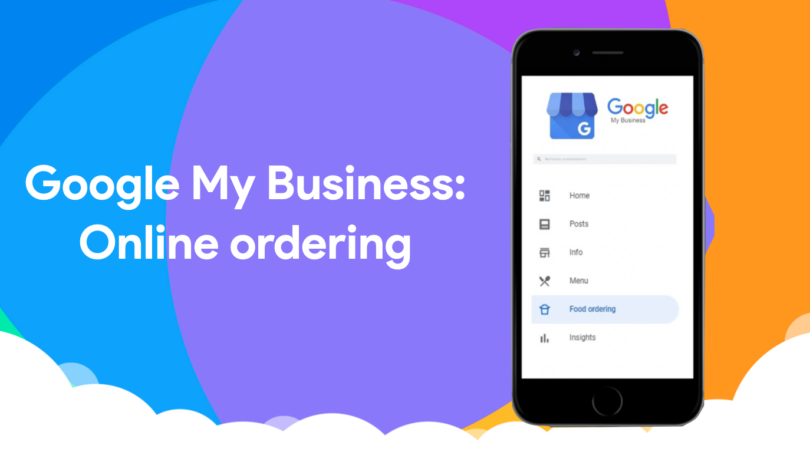10 Tricks to Becoming a Successful Food Entrepreneur

Source:pexels
An entrepreneur is a person who creates new products, services, or ideas to solve global challenges. Every person’s journey to entrepreneurship is unique, but all successful entrepreneurs must be prepared for rejection and criticism. Not only this but they are always learning and developing themselves.
How many legends have we heard of a foodie establishing a passion for the food business and eventually becoming a food entrepreneur? Or a techie surprising his or her boss by abandoning a lucrative career to pursue a passion for food? Others have been fostering the dream of owning a restaurant since they were children and are working diligently to make it a reality.
There is no magic formula or holy grail to being a successful entrepreneur, but here are ten pointers to help you along the way:
1. Develop a Business Plan

A business plan helps you visualize how your food business will work by putting your thoughts on paper. In short, you must ensure that your business plan will respond to the below questions that are relevant to your company:
- What is the nature of your product or service? What are your main concerns?
- Where are you going to run your company? Where do you see yourself in the upcoming 5-10 years?
- When will your company begin operations?
- What makes consumers want to buy your goods or services?
- What is the demographic of your target market? Who is your main rival?
- What will be the day-to-day operations? What plans do you have in place to deal with unanticipated circumstances?
Take the above questions as a few good examples to get you started when it comes to brainstorming. The more questions you can answer, the clearer your message will be.
2. Be Frugal
Before you buy something or sign a lease, think twice. Refer to your business strategy and ask yourself how your acquisition will contribute to the growth of the company, as well as any additional costs you may incur, like depreciation and maintenance fees.
Always try to do more with less and explore cost-cutting opportunities, such as bartering with other businesses. This is similar to how you brainstorm when looking for the best DIY tips just to save money and make the process exciting.
3. Never Stop Educating Yourself

Be a voracious student. You can watch live seminars or workshops from the comfort of your own home. Also, try reading some books by top successful food entrepreneurs you like. Even if they aren’t in the same area as you, their achievements and failures can teach you a lot. Observing how people tackle challenges can provide you with ideas for how to solve your own problems.
4. Build a Winning Team
A dependable and professional workforce is the foundation of any successful food organization. This includes hiring an online personal assistant as well as making collaborations with a knowledgeable and smart accountant. Because sales are the lifeblood of every business, we propose hiring someone who can help you increase income by either boosting sales or improving the sales process.
For improved efficiency, we also propose hiring workers or partners who can handle various tasks. For example, you can hire a multi-talented packaging provider when it comes to food packaging like spout pouch packaging from logos-pack.com. Such a partner will provide you with multiple packaging products, all under one roof.
The idea is to hire the greatest people to help you reach your objectives, as well as people who share your vision. Although each player brings a unique set of skills to the table, the entire group should constantly be on the same page.
5. Find a Mind-body-soul Balance

Make sure you eat well and set some time to clear your head. Your personal well-being is just as vital as the bottom line of your business. No matter if your food business is home-based, it is essential to find methods to disconnect from work and recharge yourself. This can be done by going on a walk or exercising to release endorphins. Excessive stress has a negative impact on your health. Keep in mind that your company will only succeed if you do.
6. Use Free Marketing Tools

For marketing and promotion, free marketing platforms such as Google My Business and social media can be employed. To spread the word and communicate with like-minded people, several businesses create Facebook peer groups.
A crucial lesson: having outstanding marketing on a good product or service is preferable to having minimal marketing on a great product or service. The more well-acknowledged individuals you have, the better. Furthermore, this fits in with lesson No. 2 about being economical and getting more done with less: Why not get free publicity?
7. Find a Mentor
Having a mentor you can rely on is quite beneficial. Nothing is more helpful than genuine guidance. It doesn’t matter if you’re in a mastermind group, still in touch with past teachers, or other business acquaintances. To lessen your learning curve, work with someone who has climbed the mountain you’re attempting to cross.
8. Don’t Hesitate from Networking
Don’t be frightened to ask for assistance. Most of us have connections that can help us succeed. I’m not suggesting you phone them up and start pitching them right away, but you can always meet up with them for coffee or dinner to catch up and see if there’s any way they can help.
Try starting with LinkedIn. The social media platform is designed for the purpose of business networking. To start a discussion with a stranger, all it takes is a courteous hello and introduction with no expectations of a positive conclusion. Your network, what we believe, is your net worth.
9. Be Financially Prepared
Starting a business is often more expensive than anticipated. In the event of a financial emergency, you can set aside a percentage of your income to form an emergency fund. As a last resort, you may need to take out loans or invest your own money in the company. If the financial difficulties are under your control, however, always find the cause of the problem and correct it.
10. Invest in Insurance
A large portion of an entrepreneur’s job is risk management. Every choice comes with its own set of risks, some of which are utterly unforeseeable. Nobody can anticipate what will happen tomorrow, therefore you should spend as little as possible to secure your business and property.
Many business owners regret not buying insurance only after a disaster occurs and their bill is due. Consult an insurance professional to learn how to protect yourself and your company. You will be grateful to your future self for doing so.
Conclusion

Developing a successful food business is difficult and demands regular attention. However, the serving will be satisfying and profitable for the food entrepreneur if the correct ingredients are in place across all business units.

 How to Turn a Superyacht Charter into a Luxury Culinary Experience
How to Turn a Superyacht Charter into a Luxury Culinary Experience  What Kind of Wine is Piquette? 5 Things to Know
What Kind of Wine is Piquette? 5 Things to Know  6 Best Restaurants in Dubrovnik 2023
6 Best Restaurants in Dubrovnik 2023  Must-Try Cuisines in Hong Kong
Must-Try Cuisines in Hong Kong  8 of The World’s Most Interesting Food Tours 2020
8 of The World’s Most Interesting Food Tours 2020  The Best Abu Dhabi Restaurants For Food Lovers
The Best Abu Dhabi Restaurants For Food Lovers  Why Online Casinos Have Become a Go-To for Travelers
Why Online Casinos Have Become a Go-To for Travelers  Family Villa Holidays in Corfu: What Actually Matters for a Stress Free Stay
Family Villa Holidays in Corfu: What Actually Matters for a Stress Free Stay  Finding Solitude in the Wild Remote Camping in Undiscovered Gems Across 7 US States
Finding Solitude in the Wild Remote Camping in Undiscovered Gems Across 7 US States  Best Things To Do In Cyprus – Beaches, Nature, Boat Trips, Food, Culture, And Family Activities
Best Things To Do In Cyprus – Beaches, Nature, Boat Trips, Food, Culture, And Family Activities